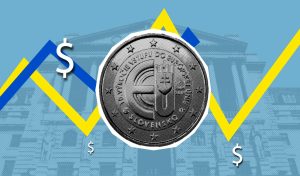Understanding the Concept of Opportunity Cost in Finance
When it comes to making financial decisions, understanding the concept of opportunity cost is crucial. In simple terms, opportunity cost refers to the value of the next best alternative that is forgone in order to choose one option over another. In other words, every decision we make has a cost, and that cost is the value of the opportunity we could have chosen instead. This concept has a significant impact on personal and business finances, and in this article, we will delve deeper into understanding opportunity cost in finance.
The Basics of Opportunity Cost
Opportunity cost is a fundamental concept in economics and finance. It applies to all aspects of decision-making, from personal choices to more complex business decisions. One of the main principles of opportunity cost is that every resource (time, money, energy) has a value, and by choosing one option, we are giving up the opportunity to use that resource for something else.
Let’s say you have $100 to invest, and you are considering two options: Option A will give you a 5% return, and Option B will give you a 7% return. By choosing Option A, you are giving up the opportunity to earn a higher return with Option B. Therefore, the opportunity cost of choosing Option A is 2%. This concept applies not just to financial investments but also to any decision that involves allocating resources.
The Impact of Opportunity Cost on Personal Finances
Opportunity cost plays a significant role in personal financial decisions. For example, if you are considering buying a new car, you must take into account the opportunity cost of that decision. The money spent on the car could have been invested in other things, such as stocks, real estate, or even a savings account. By choosing the car, you are giving up the opportunity to use that money for other purposes.
Understanding opportunity cost can help individuals make more informed and beneficial financial decisions. By considering the opportunity cost, you can weigh the potential benefits and drawbacks of each option and choose the one that aligns with your goals and priorities.
The Role of Opportunity Cost in Business
In the business world, the concept of opportunity cost can have a significant impact on decision-making. Every business has limited resources, and every decision that the company makes must take into account the opportunity cost of those resources. For example, a company may need to decide between investing in a new product line or expanding into a new market. By choosing one option, the company is giving up the opportunity to use those resources for the other option.
Opportunity cost also plays a role in pricing strategies. When businesses set their prices, they must consider the opportunity cost of not being able to sell the product at a higher price. For instance, if a company sells a product for $10, they may be giving up the opportunity to sell it for $15. This is an opportunity cost that must be factored into their pricing decision.
Maximizing Opportunity Cost
One way to make the most of opportunity cost is to have a diverse portfolio. By investing in a variety of assets, you are increasing your chances of having a higher return. This approach helps to minimize the opportunity cost of choosing one investment over another. Additionally, constantly re-evaluating your investments and financial decisions can help ensure that you are making the most of your resources.
Another crucial aspect of maximizing opportunity cost is understanding your goals and priorities. By knowing what you want to achieve, you can make decisions that align with those goals and minimize opportunity cost. For example, if your goal is to save for retirement, you may choose to invest your money in a retirement account rather than spending it on luxury items with a higher opportunity cost.
Final Thoughts
In conclusion, opportunity cost is a critical concept in finance that can have a significant impact on decision-making. It highlights the importance of considering the value of resources and the trade-offs that come with choosing one option over another. By understanding opportunity cost, individuals and businesses can make more informed and beneficial financial choices.










